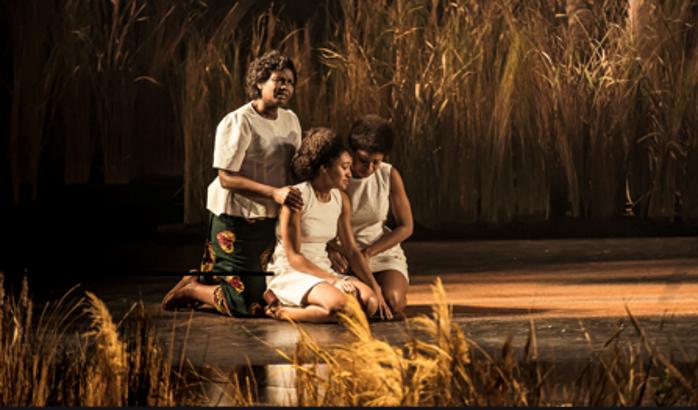Chekhov’s Russia finds a voice on Nigerian soil

By Clarissa Mondeh, BA Anthropology and International Relations
Inua Ellams’ daring adaptation of Anton Chekhov’s iconic play ‘Three Sisters’ staged at the National Theatre earlier this month prompted intrigue and anticipation.
Originally set in the turmoil of Russia at the turn of the 20th Century, Three Sisters tells the story of the Prozorovs, an educated family that is confined to life within a small provincial town. No longer able to experience the city where they grew up and for which they yearn, the family becomes increasingly frustrated. At the time of Checkhov’s writing, Russia was strictly under the jurisdiction of the Tsar, rooted in an archaic regime that continually suppressed local customs. Additionally, an atmosphere of anti-imperialist sentiments was on the rise, stemming from the Chinese Boxer Rebellion which saw China resisting the continual encroachment of Western powers on its autonomy.
A British audience to critically reflect on their own role within the piece as not mere onlookers but as a central part of this oft remote history.
Ellam’s succeeded in picking up on these undertones of stifled liberation and transferring them to the context of post-colonial Nigeria during the Biafran War – occurring only shortly after Nigeria gained independence from Britain’s rule. The Prozorov family metamorphose into the Onuzo family within this adaption, who find themselves displaced from their home and the capital of Nigeria, Lagos, into a small village setting, on request of their father who wishes them to reconnect with their Igbo heritage. The characters – representing an existing intellectual class within Nigeria at the time – find the atmosphere increasingly stifling and repressive which is furthered by the context of war.
The piece is exact in portraying the Biafran War as being rooted in ethnic disagreements between the predominantly Hausa- Fulani tribes who populated the North, and the South Eastern Igbo tribes who fought for an independent Biafran State. Whilst being set entirely in Nigeria, the narrative is infused with underlying currents that refuse to belie Britain’s veiled complicity within the events: from drawing up the very tribal lines that evolved into lines of political conflict to covertly supporting the federal government with weapons and military intelligence. This was an important provocation for a predominantly British audience to critically reflect on their own role within the piece as not mere onlookers but as a central part of an often forgotten history.
The original rendition is hailed for its progressive portrayal of strong female characters which is often attributed to Chekov’s advanced feminist views. Ellams and director Nadia Fall achieved a subtle yet penetrating homage to the power of the repressed woman not only throughout wartime but as a revered precedent in pre-colonial Nigerian culture. The ominous appearances of The Chant Poet, who recites Igbo lyrics, acts as a reminder of Nigeria’s traditional customs and the social as well as spiritual roles women held. Being staged at the National, the play was on a large scale, with a set design that chimed seamlessly with the sixties style costume, further aiding an important visual distancing from the play’s original setting.
Though this unorthodox version has been criticised by some for its attempt at condensing such an expansive topic into three hours, it has still been immensely successful in bringing this avoidable subject into clear focus through the act of storytelling.




